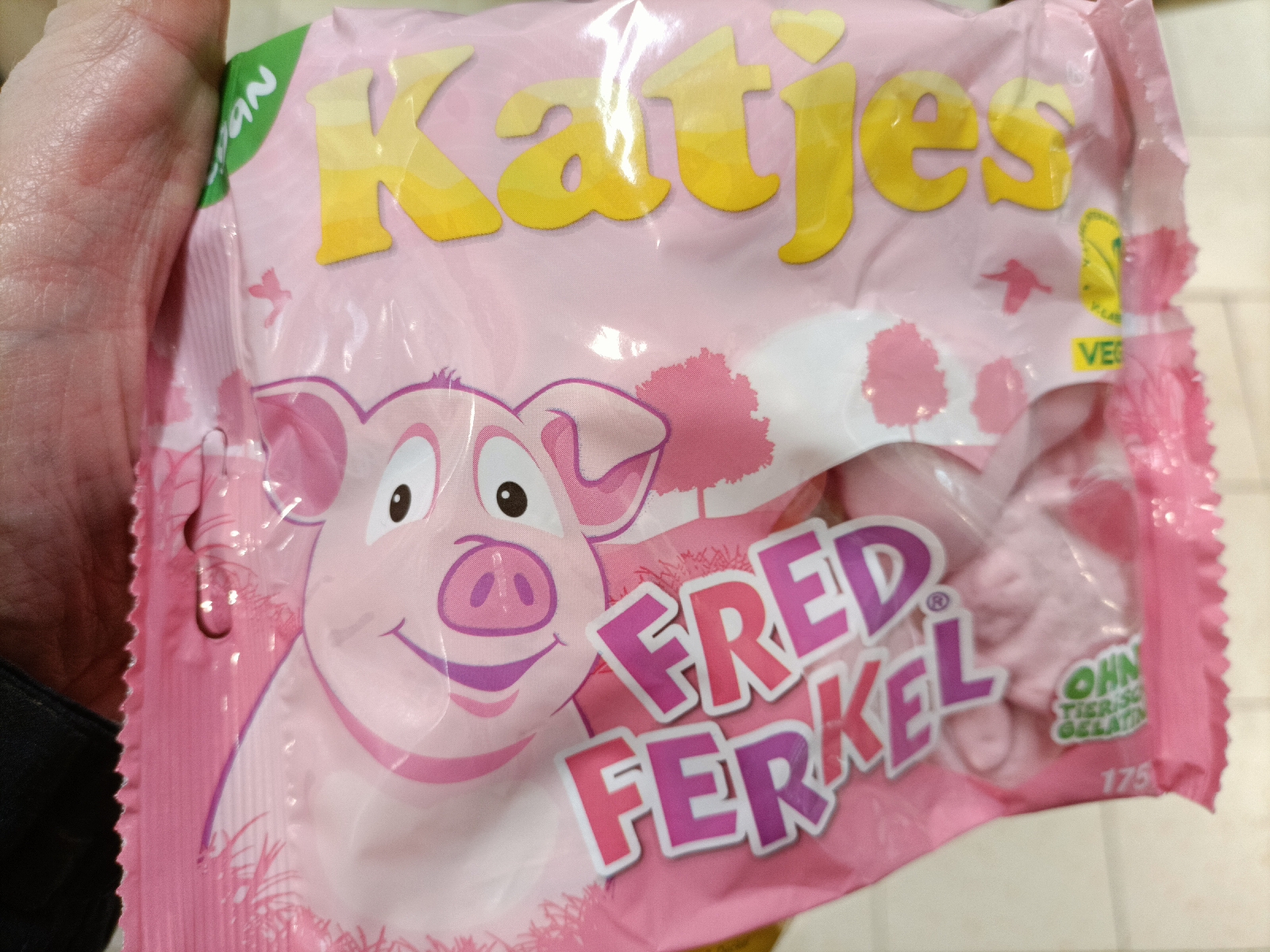The funniest thing, I think, is that the product is advertised as "vegan", "ohne tierische Gelatin". Is a pig the most appropriate figure to represent a vegan product? But in the meantime it is already my turn at the checkout and I have paid off my doubts. Not much later I am sitting on the train to the North, feeling sweetly vega-healthy nauseous.
When I am in Bonn, I usually buy the General Anzeiger, the Bonn newspaper in which I placed an advertisement in the summer of 1994. "Dutchmen (38) would like to get to know German, Germany and the Germans, seeking contacts for conversations and work assignments". The reactions drew me deeper into Germany than I had anticipated, a few months later I was living with mother Maria and three daughters and had become a Bonner Bürger.
In addition to the General Anzeiger, when I am in Bonn I often also treat myself to a package of Haribo sweets: Harald Riegel, Bonn. Because I remember how nice it smells around that factory. With some difficulty I managed to leave those sweets alone this time, but the poor piglet left behind at the cash register - although not Harald's - had managed to tempt me into infidelity with all its sweet puns.
Maria told me at the time that she, like many other schoolchildren in Bonn, went to collect acorns in the forest every autumn - what child doesn't do that? - which she then handed in at Harald Riegel's candy factory. All children received a bag of candy as a reward. She thought that the acorns went straight into the candy soup, from which the famous Gummibärchen were made. She knew that a bunch of pigs were rooting around in the mud behind Harald Riegel's house, but she had no idea what they had to do with the candy.
We now know that gelatin is needed for the sweet candy and Harald Riegel received free pig food and therefore cheaper gelatin every autumn, thanks to his playful agreement with the town's youth. Gelatin is a binding agent, made from animal bones. From boar to gummy bear. But the diligent schoolchildren will not have realised that Harald's pigs did not survive the candy.
So now there's Fred Ferkel, the happy veggie pig, who can safely recommend the candy - not from Haribo - without being ground up in it himself. Good for Fred, but a bit of a vague veggie.


Geen opmerkingen:
Een reactie posten